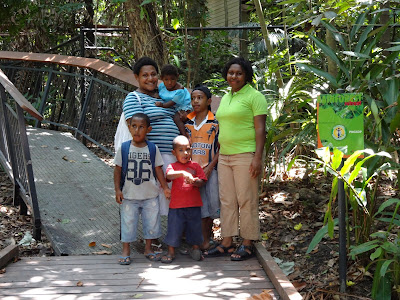There is no question
that the seemingly out of control lawlessness in the country, particularly the
rise in incidence of violent crime against women and children is cause for
concern for all.
However the call for,
and moves to see the implementation of draconian measures, including that of
the imposition of capital punishment and the reintroduction of the Vagrancy Act must be viewed with
scepticism.
The imposition of any
draconian law will no doubt result in the impingement of certain individual and
collective rights guaranteed under the Constitution
and will open the door for opportunities for further abuse. It also gives the
impression to the general public that our political leaders have exhausted
every possible avenue, and have tried all conceivable means to arrest this
slide in lawlessness across the country without success.
The imposition of
draconian measures, including state sanctioned violence through the
implementation of capital punishment is a capitulation. An admission of defeat,
and of the fact that our political leaders have ‘run out of ideas’ to correct
this unacceptable situation in which we find ourselves.
Accepted, measures such
as a nationwide State of Emergency, or one that is imposed in known crime
‘hotspots’ will provide temporary relief, however the intention of Government
should be on devising stronger and more permanent measures aimed at giving
greater protection to our people, particularly our women and children.
This exercise has to be
focussed on countering the root causes of the seemingly national sense of discontentment
that has manifested itself in various forms, including through an obvious
decline in moral standards, and the increase in incidence of opportunistic and
violent crimes.
However, empirical
evidence from studies in countries which have implemented, or continue to
implement capital punishment in its various forms suggests that this form of state
sanctioned vengeance is not an adequate deterrent to crime.
A major death penalty study carried out in the United
States in 1997 found that there was no evidence that the death penalty had any significant
effect on crime rates, from minor offences to major crimes such as “murder, the
personal crimes of negligent manslaughter, rape, assault and robbery, as well
as the property crimes of burglary, grand larceny, and vehicle theft. In other
words, there is no evidence ... that residents of death penalty jurisdictions
(US States that implemented the death penalty) are afforded an added measure of
protection against serious crimes by executions.” Also, the finality and
irreversibility of capital punishment does not support rehabilitative
approaches.
Papua New Guinea’s peculiarities aside, state
sanctioned murder is not the answer. Neither is the possible imposition of
legislation such as the Vagrancy Act
since any such legislative enactment which seeks to restrict the free movement
of people will be deemed to be against the Section 52 (Right to Freedom of Movement) of the Constitution, and as such, an unconstitutional law.
The PNG Supreme Court in fact ruled that provisions of
the previous version of the Vagrancy Act enacted in 1986 were a breach of
several such freedoms, including the right to free movement, as guaranteed by
the Constitution.
Nonetheless, concerns on restricting the movement of
people across provincial borders, as well as that of curbing the increase in
rural-urban migration and its related problem of increased urban settlements
can be implemented through an existing legal mechanism. This is found in
Section 205B (Restriction of Movement)
of the District Courts Act 1963 which
states in Subsection (1) that “notwithstanding that restriction of movement is
not specified as a punishment for an offence, a District Court may, in addition
to any other punishment or punishments imposed, also impose restriction of
movement in accordance with this section.”
Subsection (3) of the Act specifies that “where a
person is convicted of an offence, the District Court that convicts him may, in
addition to or instead of any other punishment that may be imposed, order him
to (a) not to come or be within such a part of the country as the District
Court specifies, or (b) to be returned to his home, as specified by the
District Court, during such period, not exceeding five years, as is specified
by the Court.”
Subsequent subsections of the Act determine, amongst other things, what ‘home’ in relation to a
person means.
Whereas the Vagrancy
Act gave wide ranging arrest powers
to Police, subjecting any member of the public to arbitrary arrest upon the
basis of a hint of suspicion, Section 205B of the District Court Act allows the lawful and legitimate removal of
persons from whichever community within which he or she has been convicted of a
crime. This also ensures that members of a community who are otherwise
gainfully engaged and not criminally inclined are not unnecessarily victimised
as they could be under the Vagrancy Act.
The State does not need to impose ‘draconian’ measures
which will further restrict the rights and freedoms of people who are already
limited in their movement, etc., by the ever present threat of crime. It needs
to revisit existing legislation and mechanisms and where found to be
appropriate and lawful, apply. Where found to be weak and ambiguous, strengthen
and made specific, and where found to be missing or ‘silent’, enact and
enforce.
Most importantly,
community and national leaders must seek to address the root causes of problems
that contribute to the increased marginalisation of people and the consequent national
sense of discontentment simmering beneath.













